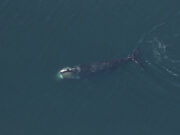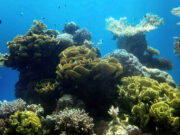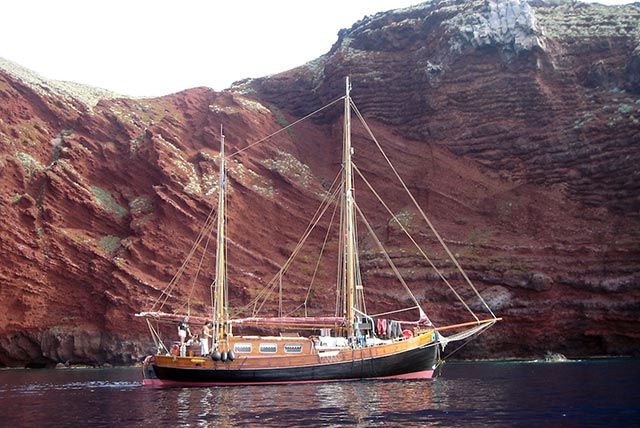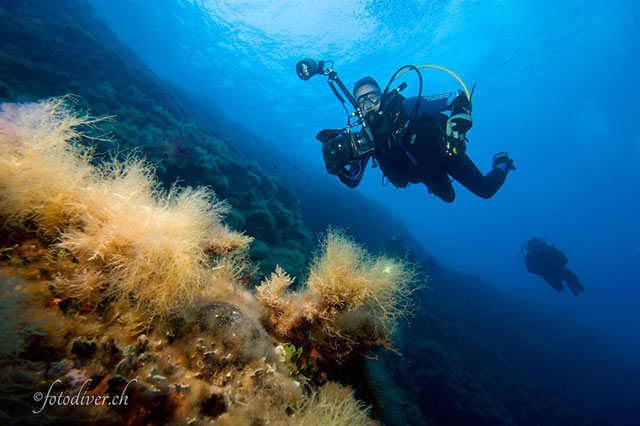There is something special about joining a small liveaboard for a more intimate dive safari. You can enjoy a more personalised service, smaller dive groups, and the chance to book the whole boat easily or get to know your fellow travellers better. There is often more flexibility in dive schedules and a slower-pace of life to enjoy as you sail from island to island. Here are our top choices of small liveaboards around the world.
1. Shore Thing
Where is it: Western Australia
What makes it special: The Shore Thing catamaran offers 3 to 9-night diving and snorkelling cruises to Ningaloo Reef, making this liveaboard perfect for a quick or longer getaway. Being a catamaran, she is extremely comfortable and stable both at sea and on anchor. Catering to a maximum of 10 guests, dive groups are kept small. When you’ve had your fill of diving, you can relax in the hammocks and take in the stunning views.

Why dive there: Pristine waters and abundant marine life make western Australia a great location for divers and snorkelers alike. Dive sites are uncrowded and marine life highlights include humpback whales, whale sharks, manta rays, turtles and reef sharks. You can even spot dugongs there.
When to go: The best time to see whale sharks is from mid-March to July, whilst humpback whales migrate through the area mid-June until late September.
2. Tidak ApaPa
Where is it: Indonesia
What makes it special: The KLM Tidak ApaPa offers a personalised dive service, with a ratio of 4 divers to 1 guide. This traditional sailing phinisi caters to just 8 guests and offers onboard comforts such as beanbags on deck, ideal for lounging on as the sun goes down. The onboard cruise director is a marine biologist and underwater photographer, and languages spoken include English, French, German and Indonesian. This budget-friendly liveaboard explores diverse dive areas of Indonesia; such as Raja Ampat (including the Dampier Strait and Misool), the Banda Islands and Komodo National Park.
Why dive there: There are over 2000 species of fish and 500 coral species in Indonesia, plus sharks, manta rays, dolphins, turtles and a wealth of tiny critters. Dive within Komodo National Park and you can hike stunning islands and meet Komodo dragons in between admiring the endless marine life on offer.
When to go: The best time to visit really depends on the dive area you choose within Indonesia. Thankfully the Tidak ApaPa offers dive cruises all year and chooses the best route for your trip depending on the season.
3. Oceanes Dream
Where is it: Madagascar
What makes it special: The Oceanes Dream catamaran caters for just 8 guests in 4 double cabins. Each cabin has its own en-suite bathroom and double bed, offering a little luxury whilst exploring the best dive sites of Madagascar.
Why dive there: Oceanes Dream safaris depart from Nosy Be and explore the pristine islands of the Radama Archipelago and the Mitsio Archipelago. Divers regularly encounter schools of barracuda, jacks, whitetip reef sharks and hammerhead sharks at Radama. The Mitsio Archipelago is idea for spotting large schools of fish, plus manta rays and whale sharks. You can explore stunning beaches in between dives and keep your eyes open for humpback whales and dolphins passing by.
When to go: May to December is the most popular time to visit, with October to November offering the chance to see whale sharks around Nosy Be. Humpback whales arrive to calve between July and October.
4. Aqua Tiki II
Where is it: French Polynesia
What makes it special: Launched in 2011, the Aqua Tiki II offers dive safaris in French Polynesia. That paradise destination alone is enough to make this a popular liveaboard choice. Dive safaris range from 8-night to extended 17-night safaris, during which you’ll cruise among beautiful islands and experience some of the best diving in the world. Catering for just 8 guests, this catamaran offers diving, beach walks, watersport activities and amazing diving all in one trip.
Why dive there: French Polynesia was one of the last places on Earth settled by humans and is rich with underwater landscapes and marine life. Imagine atoll diving, drift dives and big pelagics. The main highlight is the sheer number and diversity of sharks, plus manta rays, humpback whales and exciting drift dives.
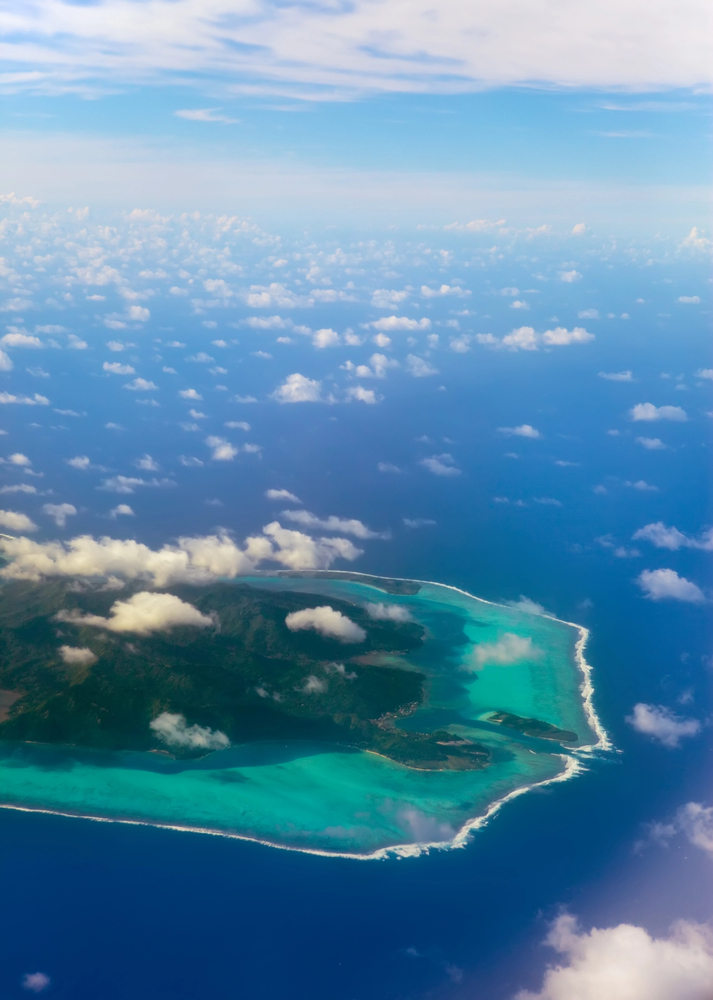
When to go: Scuba diving is possible all year, with distinct seasonal highlights. Humpback whales can be seen from July to November, whilst hammerheads and eagle rays can be seen in large numbers from December to March. Large numbers of grey reef sharks are present all year.
5. Norseman
Where is it: Italy
What makes it special: This traditional wooden sailing vessel was built in 1922 and offers diving safaris in the Tuscan Archipelago. There are 3 bunks on board the Norseman, catering for 6 guests, and on onboard chef serving up fresh Cuban and other international dishes. This is a different kind of liveaboard adventure, where you’ll experience hidden coves and dive sites with no other boats around.
Why dive there: Elba Island, in the Tuscan Archipelago National Park, has numerous dive sites where you can enjoy exploring wrecks and swimming with barracudas, conger eels and numerous fish species. You might also get to see sun fish, dolphins and whales and there is plenty of smaller marine life on offer. One of Elba’s most famous sites is an underwater museum off the coast, with a collection of statues depicting historical and mythological figures. The wreck of the Elviscott is not to be missed either and makes a great shallow wreck dive.
When to go: Scuba diving is possible all year, with the warmer summer months offering the most critters. The winter is a great time to visit and enjoy dive sites all to yourself.
6. Zepellin
Where is it: Honduras
What makes it special:The SV Zeppelin liveaboard is beautiful floating home for up to 4 guests. There is a Master Suite, which has a queen size bed, a forward suite which can be used as a large single or double and the passageway cabin with two bunks which is perfect for single travellers or children.
 Image: DepositPhotos
Image: DepositPhotosWhy dive there: Honduras is a central American country known for beautiful diving at the Bay Islands. The diving features underwater mountains with dramatic walls, cracks and crevices, the world’s second largest barrier reef, and the chance to swim with whale sharks. Above water there are stunning jungle-covered hills and white sandy beaches to explore.
When to go: Scuba diving is possible all year. You might see whale sharks at any time of the year but mid February to April are the peak months.
This article was written especially for SCUBA News by divers and writers of Liveaboard.com. Another great small liveaboard is the Duyung Baru in Komodo.
Image credits:
- banded-shrimp-caribbean: DepositPhotos





